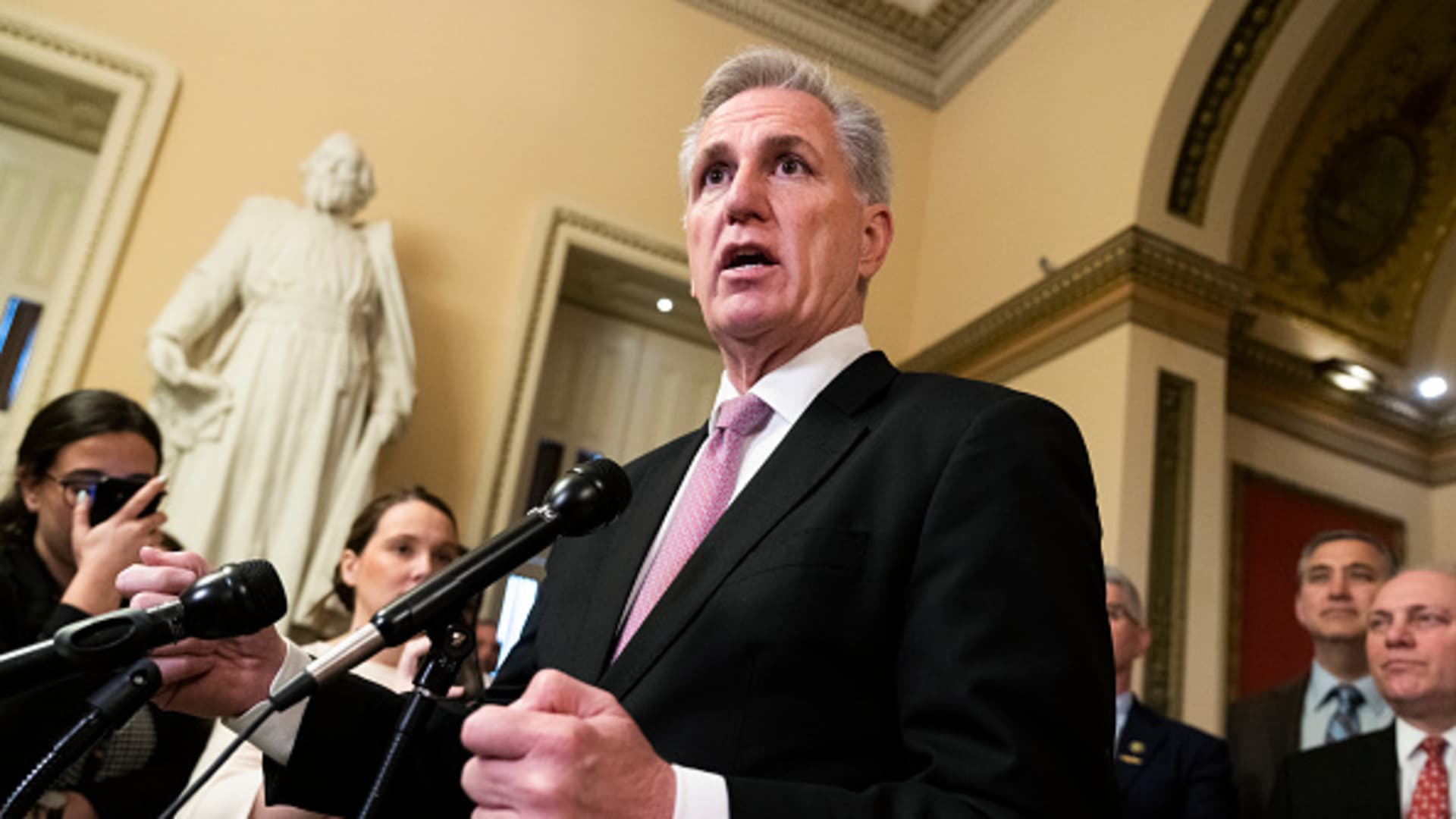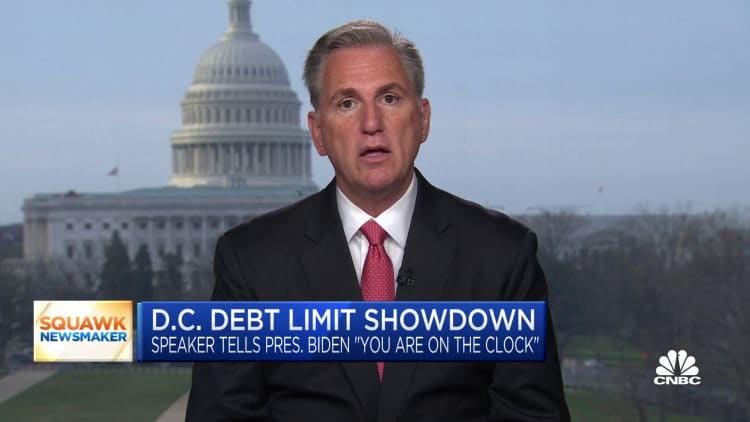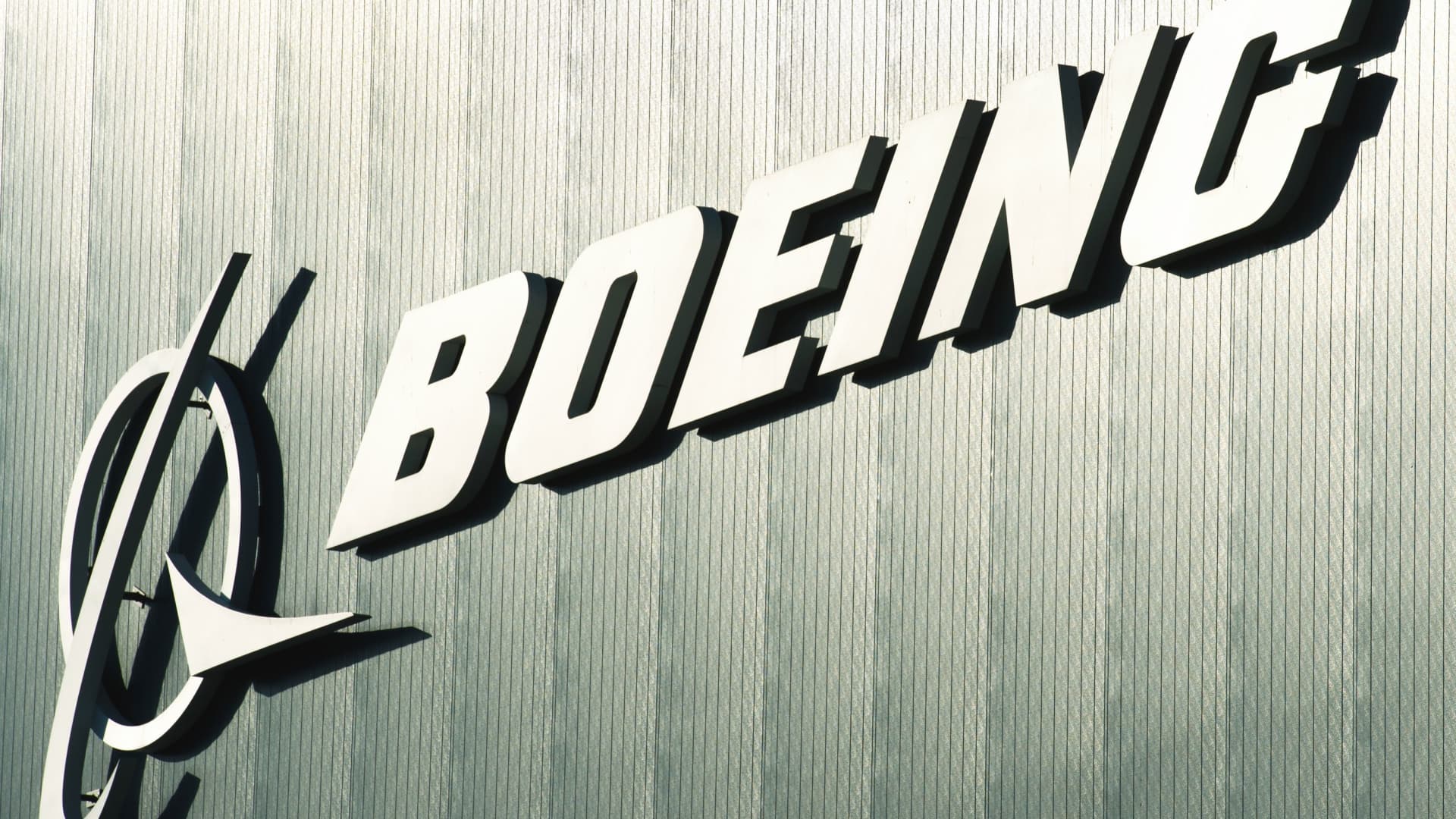As McCarthy laments 'no progress,' here's where U.S. debt ceiling talks stand
House Speaker Kevin McCarthy told CNBC's Squawk Box there has been "no progress" in debt ceiling negotiations between House Republicans and the White House.


House Speaker Kevin McCarthy said Tuesday that there has been "no progress" in debt ceiling negotiations between House Republicans and the White House, as the U.S. inches closer to risking a first-ever default.
"We've made no progress," the California Republican told CNBC's "Squawk Box." "I'm always an optimist. I'm not now."
Congress periodically needs to lift the debt limit, the maximum amount the federal government is allowed to borrow, to cover spending obligations. The government often spends more money than it takes in from taxes, resulting in the deficit. House Republicans have refused to lift the debt ceiling without promises of spending cuts.
"Time is ticking," McCarthy said in the interview. "Now I'm very concerned about where we are."
The U.S. already hit its debt limit, forcing the Treasury to take so-called extraordinary measures to keep paying its bills. The nonpartisan Congressional Budget Office estimated the administration will exhaust its emergency tools sometime this summer, raising the prospect of a default unless lawmakers raise or suspend the ceiling.
The White House has taken the position that while spending cuts need to be made, it will not negotiate on the debt ceiling, and expects Republicans to lift the limit. Democrats argue that the GOP has only made the borrowing limit an issue when a Democratic president is in power. They point to the multiple times Republicans authorized debt ceiling increases under former President Donald Trump while authorizing new spending and tax cuts for the wealthiest Americans.
It has been nearly two month since McCarthy and Biden met to discuss debt ceiling measures. McCarthy, in a letter to Biden Tuesday morning, stressed action needed to happen and called the non-negotiation position "extreme." McCarthy said he is prepared to continue discussions.
"It's time to drop the partisanship, roll up our sleeves, and find common ground on this urgent challenge," McCarthy wrote, asking the White House to reach out to his team by the end of the week.
The spending cuts Republicans want remain murky. Republicans balked at allegations they are seeking to cut funding to programs like Social Security and Medicare, leaving little else to adjust. In his Tuesday letter, McCarthy proposed reducing non-defense spending to "pre-inflationary levels," reclaiming unspent coronavirus relief funds and strengthening entitlement work requirements for individuals without dependents.
Biden released his budget earlier this month, which called for a 25% minimum tax on the richest Americans, among other levies, to cut the deficit by $3 trillion over the next decade. The president has asked House Republicans to release a budget as well, and negotiate spending cuts from there, but they have yet to do so.
"It's time for Republicans to stop playing games, agree to a pass a clean debt ceiling bill, and quit threatening to wreak havoc on our economy," White House press secretary Karine Jean-Pierre said in response to McCarthy on Tuesday. "And if they want to have a conversation about our nation's economic and fiscal future, it's time for them to put out a budget."
Not lifting the debt ceiling would have catastrophic effects on the U.S. economy. Failure to do so would halt daily operations within the federal government, and potentially roil markets and the broader economy.
A Moody's Analytics report last year found a default on Treasury bonds could throw the U.S. economy into a tailspin as bad as the Great Recession. If the U.S. were to default, gross domestic product would drop 4% and 6 million workers would lose their jobs, according to the Moody's estimate.

 Fransebas
Fransebas 





























